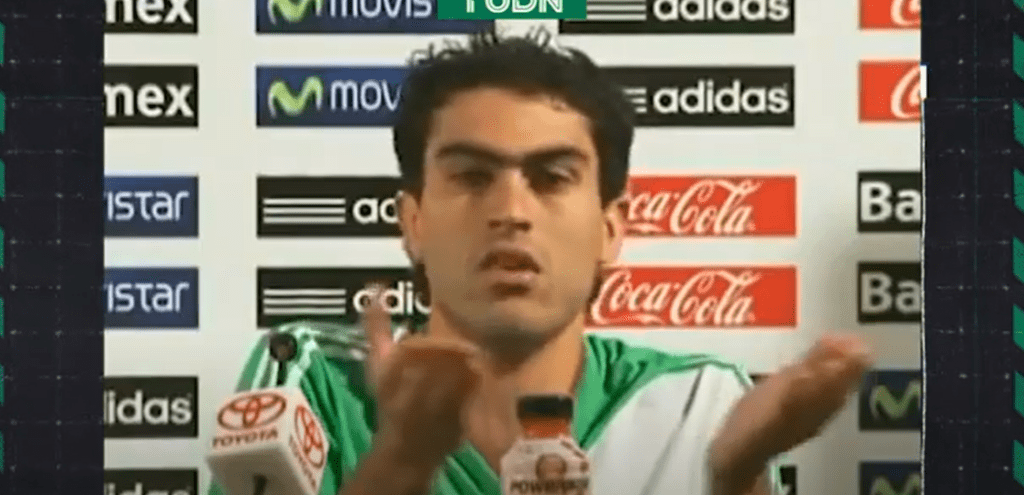Nery Castillo – Profile and Financial Overview
| Full Name | Nery Alberto Castillo Confalonieri |
|---|---|
| Date of Birth | June 13, 1984 |
| Place of Birth | San Luis Potosí, Mexico |
| Height | 1.70 m (5 ft 7 in) |
| Position | Forward |
| Active Playing Years | 2000–2014 |
| Total Club Appearances | 196 (42 goals) |
| National Team | Mexico (21 caps, 6 goals) |
| Estimated Career Earnings | $1.89 million (adjusted to ~$2.53 million in 2025) |
| Highest Market Value | €15 million (2007, Transfermarkt) |
| Estimated Net Worth | ~$10 million (2023 estimate) |
| Post-Career Work | Fishing business in Greece |
| Reference | Capology Salary Profile |

Nery Castillo’s financial story is filled with genius, unexpected twists, and a personal development that few athletes can openly discuss. Castillo, who was once thought to be a foundational talent for Mexican football and was valued at €15 million, distinguished himself with his unpredictability and raw skill. But like his career, his financial story took unexpected turns, influenced by pride, ambition, injury, and, in the end, peace.
Castillo started playing football at a young age. He was born in San Luis Potosí, Mexico, and spent some time in South America. His early promise brought him to Olympiacos, where he made an instant impression. He scored important goals there and established himself as a nimble, fearless forward, winning over the supporters. His Champions League performances helped raise his profile throughout Europe and opened the door for one of the most costly transfers at the time.
Castillo arrived in Ukraine in 2007 after Shakhtar Donetsk paid €20 million for him. This deal, which at the time was a league record, showed how much the league believed in his abilities. The player’s reported career earnings of $1.89 million, or about $2.53 million today, underscore the stark discrepancy between transfer valuations and player income, despite the fee being astounding. Olympiacos and middlemen received the majority of that transfer fee.
Castillo’s strong ties to his birthplace were evident in his choice to play for Mexico rather than Uruguay, Italy, or Greece. In his international career, his performance in the 2007 Copa América, especially the match against Brazil, continues to be a highlight. He was one of the top scorers in that tournament, scoring four goals and demonstrating exceptional effectiveness under duress. However, instability started to cast a shadow over his club career even as he excelled for Mexico.
Castillo famously took a penalty against coach orders while playing for Shakhtar, a team that he clashed with. He was publicly chastised, benched, and missed. The rest of his journey was shaped by the tension between discipline and confidence that was evident in that incident. His desire to play in England was shown by a later loan to Manchester City. He paid a portion of the transfer fee himself, which is a very uncommon action. Unfortunately, his time was cut short by a shoulder injury.
Quickly following were loan spells with Dnipro, Chicago Fire, Aris, and León. Castillo never really settled, but he continued to be active. Although these contracts helped him make a living, they lacked the long-term stability needed to create wealth for future generations. His playing career came to a quiet end during his time with Rayo Vallecano, capping a career that started with fire and ended with flickers.
What happened after football is what makes Castillo’s story so special. He didn’t go into coaching, celebrity appearances, or punditry. Rather, he started a fishing gear company in Greece, which feels real, grounded, and distinct from the glamour of professional football. Although it might appear to be a drastic change, there is a reason for it. Instead of receiving endorsement checks, Castillo chose a form of wealth measured in rhythm and peace by moving to a more tranquil area and working directly with customers.
His post-career financial situation seems secure. Thoughtful asset diversification is suggested by reports of business holdings in Greece and property ownership in Massachusetts. His estimated $10 million net worth appears to have been accumulated through investments, potential early endorsements, astute planning, and football earnings. Considering the sudden career changes and relatively short earnings window, that number is still very impressive even though it is modest in comparison to global icons.
Castillo’s journey is especially instructive in the context of the industry as a whole. Many high-profile athletes, particularly in Europe and Latin America, find it difficult to make the switch from football to other sports. Some people quickly deplete their savings because they can’t adjust. Castillo, however, opted for reinvention. His method, which is characterized by self-reliance and humility, is especially useful as a case study in finance. He simplified his life instead of overstretching his brand.
His career serves as a potent reminder for fans. Although it requires consistency, talent can be stunning. Bank accounts are not always reflected in market value. Most importantly, though, is that reinvention is always possible, particularly when motivated by principles rather than ego. Castillo never achieved the long-term superstar status that was once thought to be inevitable, but he did accomplish something perhaps more significant: autonomy.
